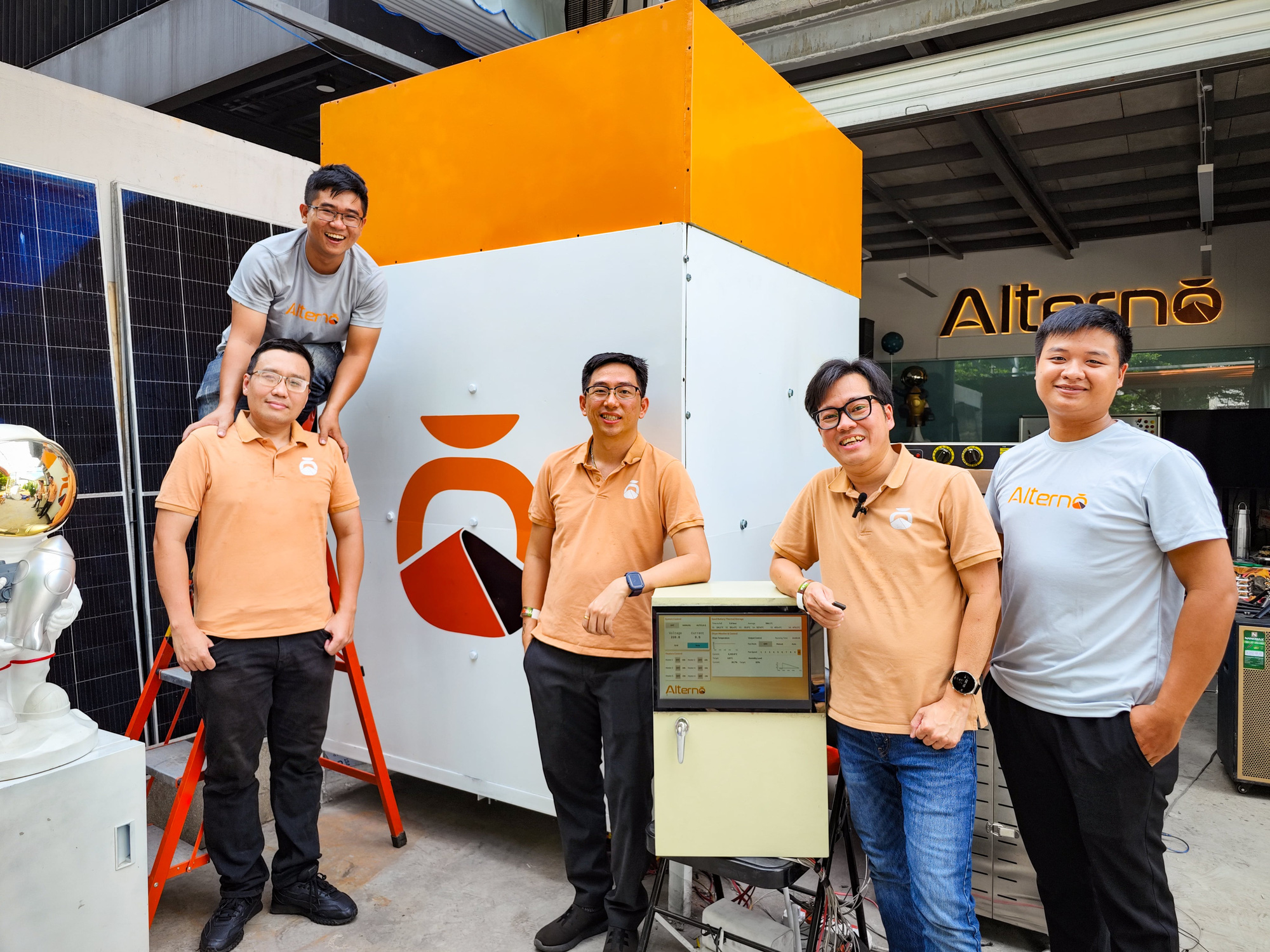Vietnamese startup Alternō has secured US$1.5 million in an oversubscribed funding round to further develop sand-based batteries for agricultural energy storage solutions, aiming to reduce carbon emissions.
The funding round was jointly led by The Radical Fund and Touchstone Partners, with contributions from Antler, Impact Square, and international grants.
Alternō offers a groundbreaking thermal energy storage solution using sand battery technology specifically designed for agricultural purposes, including drying, warming, or heating requirements.
This patented innovation involves insulated sand containing customized heat-conducting tubes.
It facilitates a smooth transition to eco-friendly agricultural methods while delivering significant cost benefits to customers in a price-sensitive sector compared to traditional grid energy and existing lithium-ion batteries.
The growing need for thermal energy in agriculture, exacerbated by climate change, highlights the urgency of adopting clean, sustainable energy solutions to mitigate carbon emissions.
According to Hai Ho, co-founder and chief commercial officer of Alternō, their vision not only addresses carbon emission reduction in agriculture but also boosts the competitiveness of Vietnamese companies on the global market amid the European Union’s Carbon Border Adjustment Mechanism (CBAM), which requires EU importers to report CO2 emissions embedded during the production of imported goods.
Besides, Alternō is advancing its sand battery systems for industrial use, ranging from 250 kWh to 1.8 MWh, promising substantial energy savings and annual carbon emission reductions for farms and agricultural businesses worldwide.
Alina Truhina, CEO and managing partner of The Radical Fund, a co-leader in the funding round, expressed enthusiasm and the expectation that Alternō will revolutionize thermal energy applications with innovative battery technology in Southeast Asia and beyond, including potential markets in Africa, the Middle East, and Latin America.
Truhina affirmed the contribution of Alternō’s integrated hardware and proprietary software to decarbonizing Southeast Asia’s agricultural sector, which accounts for 11 percent of the region’s gross domestic product (GDP) and 13 percent of greenhouse gas emissions.
The company stands as a first-of-a-kind (FOAK) thermal battery venture and the sole low-duration thermal energy storage (LDTES) startup in Southeast Asia catering to the agricultural sector, she added.
Previously, Alternō secured $250,000 in grant from Temasek Foundation and $350,000 from P4G.
In addition, the company has received support from prominent organizations such as JETRO, Qualcomm, NUS, Leave A Nest, BSSC, IBP, Hanns Seidel Foundation, Climate Launchpad, CCS, VSV, ASSIST, New Energy Nexus, and Becamex, reinforcing its dedication to sustainable energy solutions.
Like us on Facebook or follow us on Twitter to get the latest news about Vietnam!



















































